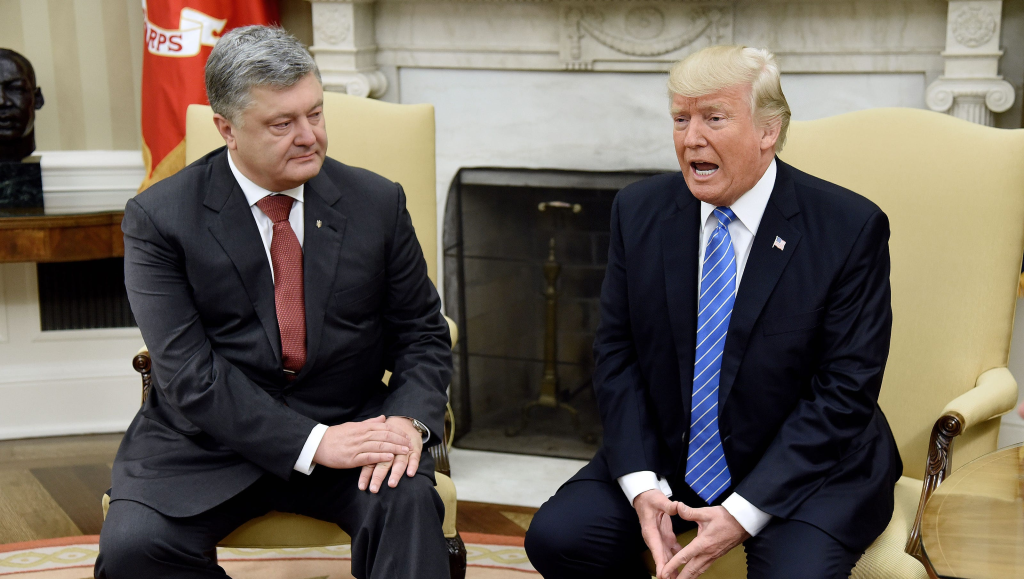In the midst of the ongoing Ukraine war news, former President Donald Trump has taken a bold stance by calling for peace negotiations aimed at ending the conflict. As Russia escalates attacks under Vladimir Putin’s command, Trump’s calls for peace become ever more urgent, especially with reports of devastating bombardments that have left at least 12 dead. “Vladimir, STOP!” Trump urged on Truth Social, expressing his discontent with the strikes just as he announced potential agreements to bring both parties to the negotiation table. With military casualties mounting at an alarming rate, Trump’s assertion underscores a pivotal moment in US-Russia relations where diplomacy may hold the key to halting bloodshed. As President Volodymyr Zelenskyy responds to the latest attack, the world watches closely, hoping for a breakthrough in the peace negotiations that could reshape the future of Ukraine and its people.
The ongoing quest for resolution in the Ukraine conflict has seen significant developments, especially in light of former President Trump’s recent interventions. Tensions have escalated with Putin’s aggressive strategies, resulting in tragic human losses in Ukraine’s major cities. Amidst this turmoil, Trump has expressed a firm commitment to establishing negotiations between the conflicting nations, showcasing an unusual blend of optimism and urgency. As global eyes turn towards the potential outcomes of these discussions, the reactions from Ukrainian leadership and the world community are pivotal, defining the future of peace and stability in the region. With Russia’s relentless aggression contributing to a complex crisis, the need for effective dialogue and mediation has never been more pressing.
Trump’s Urgent Call for Ukraine Peace Negotiations
In a moment of escalating tension, President Donald Trump has stepped forward to advocate for immediate peace negotiations amid Russia’s latest barrage against Ukraine. With his passionate directive of “Vladimir, STOP!”, Trump not only expresses his discontent but also underscores the humanitarian crisis unfolding as missile strikes claim innocent lives. In a statement on Truth Social, Trump highlighted the urgency of the situation, emphasizing that “5000 soldiers a week are dying” and reinforcing that both Russia and Ukraine desire peace. His confidence in the potential for a ceasefire indicates a strategic pivot in U.S. involvement, aiming to mediate a path toward resolution.
Trump’s attempts to communicate a bilateral deal between the conflicting nations reflect his belief in the possibility of diplomacy saving lives. He remarked on the need for both parties to come to the negotiating table despite the existing hostilities marked by hatred and bloodshed. Trump’s willingness to bridge the divide suggests he sees a role for the U.S. in guiding both nations toward understanding and eventual reconciliation. Nonetheless, the effectiveness of these negotiations depends substantially on both sides recognizing the urgency to put an end to further violence.
The Impact of Putin’s Offensive on Ukraine’s Stability
The recent missile strikes launched by Russia have devastated key areas in Ukraine, marking a significant escalation in the ongoing conflict. Targeting major cities, including Kyiv, the onslaught has inflicted not only casualties but also psychological trauma on the civilian population. The depth of destruction reported, with local officials confirming the death of civilians and severe injuries to many, highlights the brutal realities on the ground. Ukrainian officials continue to express urgency for international support and condemnation of Russia’s aggression, insisting that pressure must be applied to Moscow to seek peace overtures rather than further conflict.
Ukrainian President Volodymyr Zelenskyy’s swift return from South Africa following the strikes illustrates the dire need for leadership during such crises. His remarks on the ongoing rescue operations accentuate the scale of urgency and chaos faced by his administration. As the conflict escalates, Ukraine remains staunch in its stance against conceding territory, particularly Crimea, asserting its sovereignty despite Russia’s escalating demands. Both the humanitarian and geopolitical implications of the recent strikes call for a re-evaluation of international strategies aimed at restoring peace and preventing further loss.
The Dynamics of US-Russia Relations During Increased Hostilities
The relationship between the United States and Russia has been fraught with complexity, especially in the wake of Trump’s recent declarations amid Russia’s persistent attacks on Ukraine. Trump’s insistence on negotiating a peace deal highlights an intricate dynamic, as he navigates the existing tensions while attempting to maintain U.S. interests and international standing. Observers note that his administration’s mixed messages could influence how both Moscow and Kyiv perceive U.S. involvement in the negotiations, raising questions about whether true objectivity can be achieved.
As discussions oscillate between confrontation and potential dialogue, the Kremlin’s response to U.S. diplomatic pressures can significantly affect the trajectory of negotiations. Trump’s declaration that the U.S. provides a “pathway forward” indicates a commitment to seeking resolution, but the reality is complicated by historical animosities and recent military actions. This complexity necessitates a careful approach by the U.S. to ensure that its strategies in the Ukraine conflict do not exacerbate an already volatile situation and instead foster a foundation for genuine peace.
Zelenskyy’s Role in Peace Processes Amid Escalating Attacks
As the Ukrainian bombings persist, President Zelenskyy’s role becomes increasingly pivotal in both domestic and international arenas. His rapid return from South Africa underscores the urgency of dealing with the fallout from Russia’s most recent military actions. Zelenskyy’s commitment to maintaining Ukraine’s territorial integrity is unyielding, yet he faces tremendous pressure from both his constituents and international actors to consider negotiations, even at the risk of unfavorable terms. This balancing act is vital for sustaining morale and support within Ukraine.
Zelenskyy’s response to Trump’s peace negotiations proposal reflects the broader sentiment in Ukraine, where many perceive their leaders must not only respond to attacks but also tactically engage with international players. His stance emphasizes that any peace negotiations must not compromise Ukraine’s long-term sovereignty and integrity. This vigilance highlights the crux of the negotiations; while peace is desirable, it cannot come at the expense of Ukraine’s future security.
Understanding the Public Sentiment in Russia During the War
Public sentiment in Russia regarding the ongoing conflict is a critical component of understanding the dynamics at play in the peace process. Despite the oppressive environment imposed by Putin’s regime, numerous polls suggest a complex tapestry of opinions exists among the populace. While some individuals express unwavering support for the military actions taken by Russia, others voice their dissatisfaction and call for a ceasefire. This juxtaposition highlights not only the divided perceptions of the war but also the challenging landscape for any potential peace negotiations that may unfold.
Among Russian citizens, the fear of expressing dissent signifies a deeper societal concern. The widespread support for the military action might seemingly bolster Putin’s position, but the undercurrents of opposition pose a potential risk for future governance and diplomatic relations. If the Kremlin acknowledges a shift in public opinion, it may impact the approach toward negotiations with Ukraine. Hence, the Russian public’s sentiment forms an indispensable element in analyzing the broader implications of Trump’s peace initiatives and the potential for an actual resolution to the ongoing crisis.
The Continued Humanitarian Crisis as a Result of Conflict
The humanitarian crisis stemming from the ongoing conflict in Ukraine has reached alarming proportions, necessitating international attention and intervention. Citing reports from humanitarian organizations, the conflict has led to thousands of fatalities and massive displacement, with many forced to seek refuge in neighboring countries. Emergency services are continuously engaged in rescue operations, underlining the dire need for timely humanitarian assistance for those affected. As cities like Kyiv recover from recent strikes, the importance of international solidarity and support becomes more pronounced.
With destruction rampant in major urban areas, the future of the Ukrainian people hangs precariously as constant threats loom overhead. Civic leaders, including Zelenskyy, have rallied for support from global allies to mitigate the suffering endured by civilians. In this context, Trump’s advocacy for peace negotiations serves not only as a strategic move but also as a humanitarian imperative. Finding solutions to the ongoing crisis is essential, and any substantive peace agreement must consider the urgent need for immediate support and recovery efforts within Ukraine.
Zelenskyy’s Response to International Diplomatic Pressure
President Zelenskyy is currently navigating an intricate web of international diplomatic pressure as he seeks to protect Ukraine’s sovereignty amidst the ongoing conflict with Russia. While Trump asserts that both nations should come to the table to negotiate, Zelenskyy’s firm stance against concessionary terms has become a matter of national pride and survival. He openly criticized the push for negotiations while faced with Russian aggression, insisting that Ukraine’s territorial integrity remains non-negotiable.
Zelenskyy’s dynamic response to international pressure indicates a complex interplay between aspiring for peace and the need to maintain a strong front against the aggressor. As the rhetoric heats up, the Ukrainian president faces the daunting task of uniting internal support while also managing external expectations from allies who may be brokering peace deals. This balancing act underscores the inherent challenges both he and the Ukrainian nation must confront as they strive for stability and security in an increasingly perilous situation.
Consequences of the U.S. Peace Initiative on Global Politics
The U.S.-led peace initiative in Ukraine holds significant implications not only for the conflict itself but also for global political dynamics. Trump’s engagement in talks to broker peace reflects a larger trend where superpowers might influence regional conflicts through diplomacy. While his administration’s approach aims to mend relations with both Ukraine and Russia, it also raises questions about America’s long-term foreign policy strategies and commitments to allied nations. The outcomes of these negotiations could reshape power balances in Europe and beyond.
Furthermore, the success or failure of these negotiations might embolden or deter other nations dealing with territorial disputes. A peaceful resolution could signal a pathway for similar diplomatic efforts globally, reinforcing the role of the U.S. as a mediator. Conversely, if the initiative falters, it risks perpetuating a cycle of violence and instability, underscoring the complexities inherent in international diplomacy. The weight of this U.S. peace initiative reflects the need for careful consideration and profound implications on how global politics plays out in the face of conflict.
The Role of Economic Sanctions in Peace Negotiations
Economic sanctions have long been a tool in the U.S. arsenal during international conflicts, and the current situation between Russia and Ukraine is no exception. Trump’s comments regarding the potential for sanctions emphasize the importance of economic pressure in influencing negotiations and holding aggressors accountable. While sanctions are designed to deter hostile actions, their effectiveness often varies and can lead to unintended consequences for both the target nation and its citizens. The delicate balance of implementing sanctions while pursuing negotiations becomes all the more crucial.
As peace discussions proceed, particularly with the backdrop of ongoing Russian military actions, the consideration of sanctions remains a pivotal element. Should the strikes continue, imposing stricter sanctions on Russia could serve as a bargaining chip in negotiations, pushing for a cessation of hostilities. However, leaders like Trump must carefully assess the potential ramifications of such decisions, ensuring that the economic strategies work in tandem with diplomatic efforts to achieve lasting peace. The intricate interplay of sanctions and negotiations represents a constant negotiation of interests in pursuit of equilibrium.
Frequently Asked Questions
What are the latest developments in Trump Ukraine Peace Negotiations?
The latest developments in Trump Ukraine Peace Negotiations highlighted President Donald Trump urging Russian President Vladimir Putin to cease attacks on Ukraine following a devastating barrage on major Ukrainian cities. Trump expressed that, despite the ongoing conflict, he believes both sides are ultimately interested in achieving peace.
How did Trump respond to recent Russian attacks during the Ukraine Peace Negotiations?
During the Ukraine Peace Negotiations, Trump responded to recent Russian attacks by expressing anger over the strikes and emphasizing the urgency of finalizing a peace deal. He posted, ‘Vladimir, STOP!’ and reiterated the need to get both sides to the negotiation table amid escalating violence.
What role does Zelenskyy play in the Trump Ukraine Peace Negotiations?
Ukrainian President Volodymyr Zelenskyy plays a critical role in the Trump Ukraine Peace Negotiations, as he is integral to the discussions with Trump regarding Ukraine’s position and demands. Recently, Zelenskyy indicated that he believes strong international pressure, including sanctions on Russia, is necessary for a successful negotiation.
What are the implications of Trump’s remarks on US Russia relations during the Ukraine Peace Negotiations?
Trump’s remarks during the Ukraine Peace Negotiations suggest an attempt to balance US Russia relations by positioning the United States as a mediator. He believes that direct negotiation is necessary to achieve peace, despite acknowledging the complexities and historical tensions between the two nations.
What did Trump propose regarding territory concessions in the Ukraine Peace Negotiations?
In the context of the Ukraine Peace Negotiations, Trump suggested that some territorial concessions might be necessary but emphasized that it depends on the specific territories involved and Ukraine’s losses during the conflict. He acknowledged the difficulty Ukraine may face in regaining areas like Crimea.
What challenges does Trump face in achieving peace between Ukraine and Russia?
Trump faces numerous challenges in achieving peace between Ukraine and Russia, including the deep-rooted animosity between the two nations, Russia’s maximalist demands, and skepticism from Zelenskyy regarding negotiations. Additionally, the recent violent attacks by Russia complicate the likelihood of establishing a lasting peace agreement.
What is the significance of Trump’s peace efforts in light of the ongoing Ukraine war?
Trump’s peace efforts possess significant implications amid the ongoing Ukraine war. His calls for negotiation highlight a potential U.S. role in mediating the conflict, reflecting a shift in strategy to seek resolution despite the complex geopolitical landscape and immediate violence affecting civilians in Ukraine.
| Key Points | |
|---|---|
| Recent Attacks | Russia launched a severe bombing campaign in Ukraine, resulting in 12 fatalities just as peace talks were anticipated. |
| Trump’s Response | Trump publicly called for Russia to stop their attacks and expressed disappointment in the timing of military actions during peace negotiations. |
| Negotiation Dynamics | Despite continuing conflict, Trump remains optimistic about reaching a peace deal between Russia and Ukraine. |
| Ukraine’s Stance | Zelenskyy emphasized that Ukraine will not cede territory to Russia and criticized the lack of serious pressure on Russia. |
| U.S. Involvement | U.S. Secretary of State Marco Rubio stated that the U.S. is providing a pathway forward in negotiations. |
| Public Opinion in Russia | Surveys suggest a high level of support among Russians for the invasion, complicating potential negotiations. |
Summary
Trump’s Ukraine Peace Negotiations have recently taken a dramatic turn after Russia’s shocking military offensive on Ukraine led to fatalities and put peace talks in jeopardy. Following the brutal bombing campaign on cities like Kyiv, Trump urged President Putin to cease hostilities, asserting the need for urgent negotiations to resolve the ongoing conflict. While optimism remains regarding a possible agreement, significant resistance from both sides complicates the path to peace. The situation highlights the challenges inherent in reaching a diplomatic resolution amidst intense warfare.



